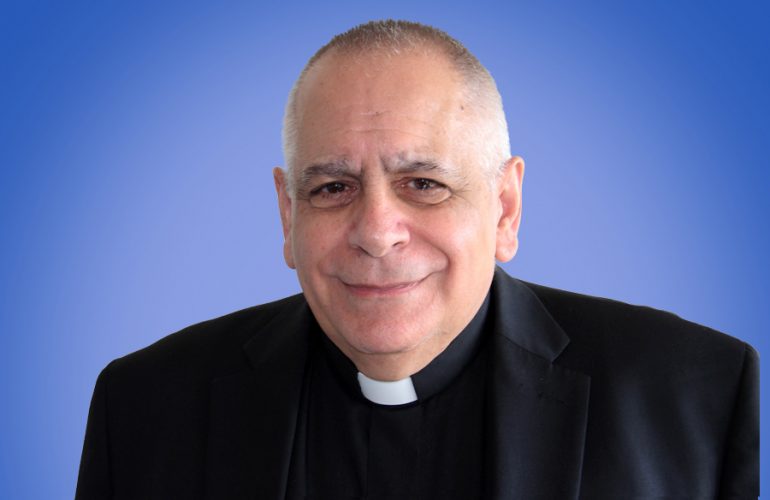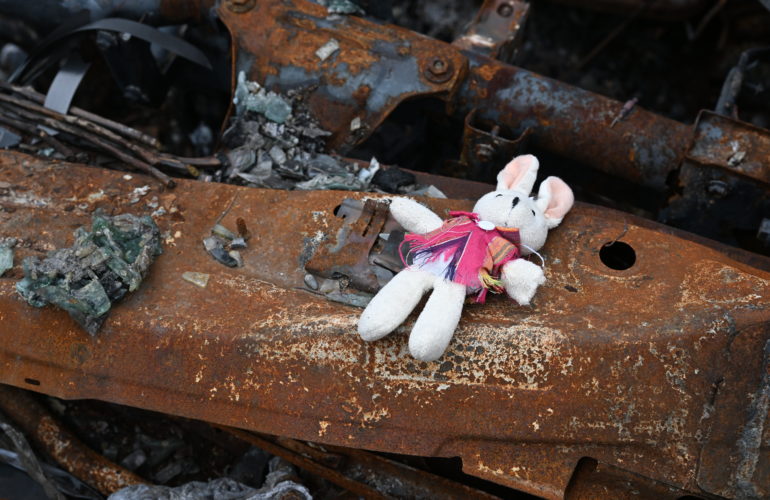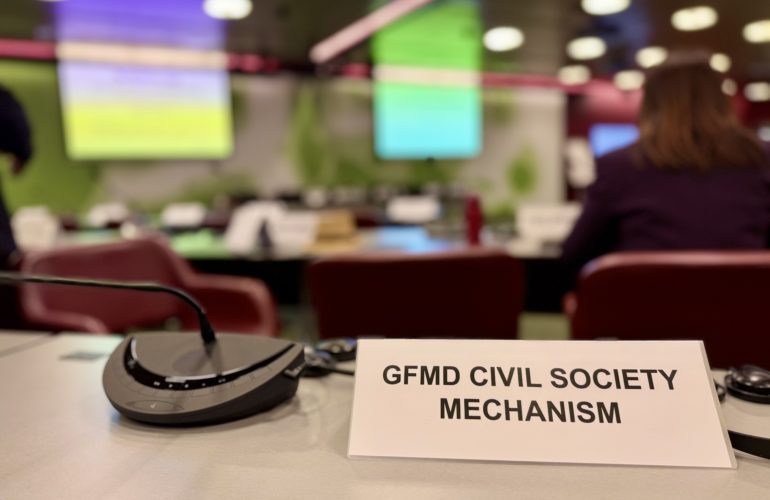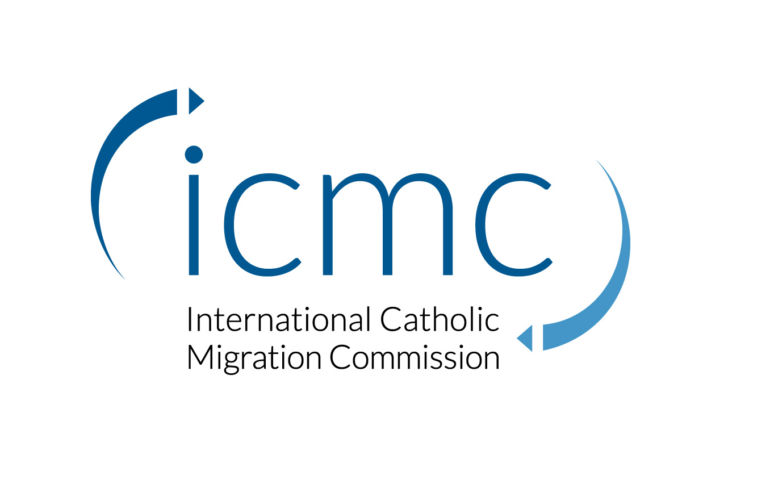109th World Day of Migrants and Refugees, 24 September 2023.
Message from the Secretary General, International Catholic Migration Commission (ICMC).
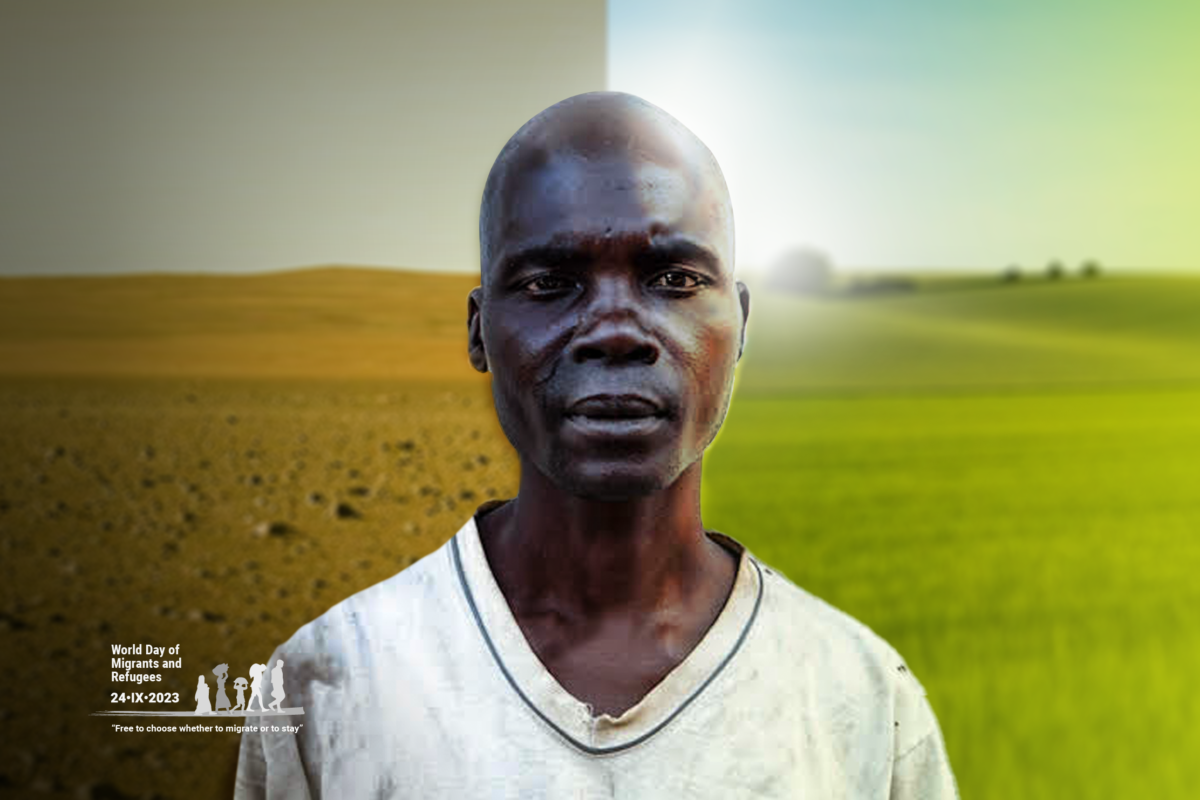
Dear visitors to the ICMC website – representatives of our National Member Episcopal Conferences, staff, volunteers; operational, programmatic, and advocacy partners; private and institutional donors; persons of good will who respect and promote the dignity and freedom of migrants, refugees internally displaced persons, and survivors of human trafficking,
For the past 109 years, the Catholic Church has promoted an annual observance of the World Day of Migrants and Refugees. This, year Pope Francis has chosen the theme:
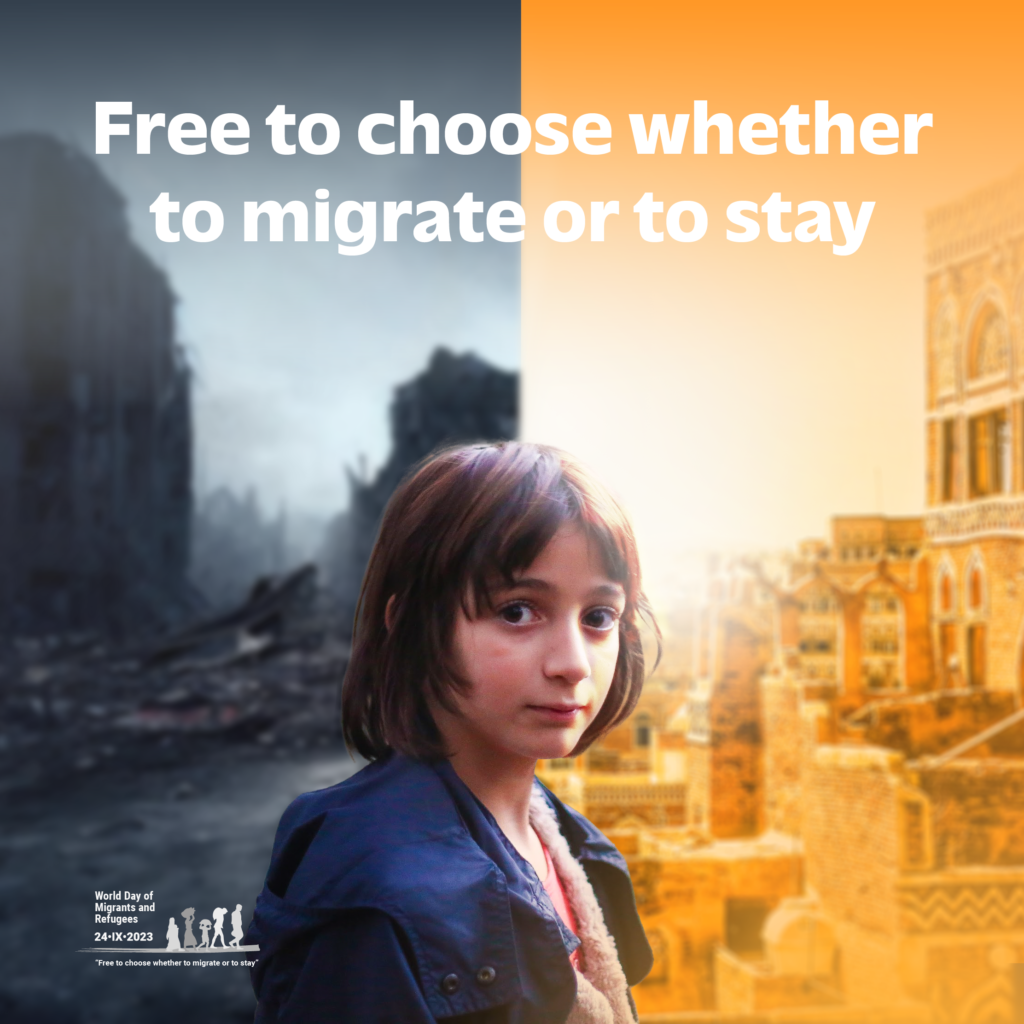
At an international conference, in which I recently was present, one participant made the statement that most migrants “are simply looking for greener pastures”. I felt compelled to respectfully disagree with him since at least 100 million migrants in our present-day world were deprived of the choice to stay at “home”. Pope Francis captured their dilemma very well in his Message for the 109th Day of Migrants and Refugees which the Catholic Church observes on September 24, 2023: “Persecutions, wars, atmospheric phenomena and dire poverty are among the most visible causes of forced migrations today. Migrants flee because of … fear or desperation.” For this reason, our Holy Father chose the theme of “Free to choose whether to migrate or to stay” as the theme of the 109th World Day of Migrants and Refugees which he asks us to observe, each year, on the last Sunday of September.
In our service to migrants and refugees in all regions of the world, ICMC hears the testimonies of those who desperately wanted to stay but finally faced the reality that only by leaving home – at least temporarily – could they assure the safety and a dignified future for their family members.
Listen to this testimony from Laila, an Indian who was displaced, because of severe drought in her home region that formerly produced many agricultural crops.

Laila migrated internally to Bangalore, which offered work in the construction industry, since it was a growing technology capital. Laila recounts their experiences: “Naturally, when you leave your place of birth for another, unknown place, you are not prepared … In our situation, it is difficult to get documents and enforce our rights… Whenever possible, I go with … [my husband] to work at the building site. As you can imagine, we are talking about hard work: Carrying stones to the top of buildings is backbreaking. Every day, our hearts and thoughts go to our village. That is our home. Every month, we send money to our family so that they can live a little better.” And she shares her dream for a better tomorrow at least for their children: “Our children study and I hope that once their studies are finished, they will be able to choose the kind of life they want to embark on, either here in the city or in our village.”
Pope Francis asks us to make a commitment on this World Day of Migrants and Refugees, by seriously considering “what we can do, but also what we need to stop doing” by putting an end to so much forced migration in the world. “We need to make every effort to halt the arms race, economic colonialism, the plundering of other people’s resources and the devastation of our common home … To make migration a choice that is truly free, efforts must be made to ensure to everyone an equal share in the common good, respect for his or her fundamental rights, and access to an integral human development.” He reminds us of Jesus’ requirement for entry into His Kingdom, “… I was hungry and you gave me food, I was thirsty and you gave me something to drink, I was a stranger and you welcomed me, I was naked and you gave me clothing, I was sick and you took care of me, I was in prison and you visited me” (Mt 25:35-36). The Holy Father shares his conviction that “These words are a constant admonition to see in the migrant not simply a brother or sister in difficulty, but Christ himself, who knocks at our door.”
One way to ensure that forced migration can be eliminated in the future is to ensure that decent and dignified work, with just and fair compensation, is available in all parts of the world and to eliminate the exploitative conditions, trafficking of people, and slavery that still is prevalent in so many parts of the world. You may be very concerned, as I am, that, according to the UN’s International Labor Organization:
- 49.6 million people, one in every 150 people living in today’s world, are living in modern slavery today, of which 27.6 million are in forced labour and 22 million in forced marriage.
- Of the 27.6 million people in forced labour, 17.3 million are exploited in the private sector; 6.3 million in forced sexual exploitation, and 3.9 million in forced labour imposed by governmental authorities in the countries in which they live.
- Women and girls account for 4.9 million of those in forced sexual exploitation, and for 6 million of those in forced labour in other economic sectors.
- 12% of all those in forced labour are children. More than half of these children are in forced sexual exploitation. (International Labor Organization, Facts and Figures, Modern Slavery, and Human Trafficking)
- Migrant workers are more than three times more likely to be in forced labor than non-migrant adult workers.
ICMC was able to pledge our commitment to promote decent and dignified work during the June 2023 session of the International Labor Conference, which was held in June 2023, in Geneva, Switzerland. This event was attended by approximately 5,000 delegates representing governments, workers and employers, and non-governmental organizations, including ICMC and the members of the “Future of Work: Labour after Laudato Si’ Initative, which is managed by ICMC and includes numerous other Catholic-inspired organizations (see https://futureofwork-labourafterlaudatosi.net/ ).
In her address to this global Conference, Ms. Christine Nathan, President of ICMC’s Council of national member Bishops’ Conferences and Chair of ICMC’s Governing Committee, acknowledged that “the world of work has been confronted with profound and wide-ranging challenges, including the long-range impact of the COVID-19 pandemic, economic crises, and both more recent and ongoing, but often ignored and forgotten, conflicts, wars, persecutions, inequalities and injustices, in every region of the world.” She noted that “…the heaviest burdens are shouldered by those who are most vulnerable, including forced migrant, refugee, and informal workers.” On the other hand, she affirmed “the strengths and resilience of these same populations as well as their much-needed contributions to the societies in which they are welcomed, protected, promoted, and integrated.” Finally, echoing the words of Pope Francis, she urged that “common efforts, guided by common values, must constitute the driving force toward sustainable development.”
In addition to its strong promotion of advocacy for greater social justice to be put into practice by governments at global, regional, and national levels, ICMC also takes action with its Catholic Church partners at local levels to help workers who have been subjected to unfair employment practices or who were confronted with other challenges in the world of work. These efforts include offering training, motivation, and resources for a new start in economic activity fully in keeping with their human dignity and potential. Please meet Delhi-based Moahmmed Aslam Siddiqui. Mr Siddiqui lost his job in an electrical repair shop that went out of business as a result of the global COVID-19 pandemic. He had no access to severance pay, unemployment or other social benefits. With a small business grant from ICMC and the Indian Catholic Bishops Conference, he now works door-to-door repairing and selling electronics and is the sole wage earner in his household.
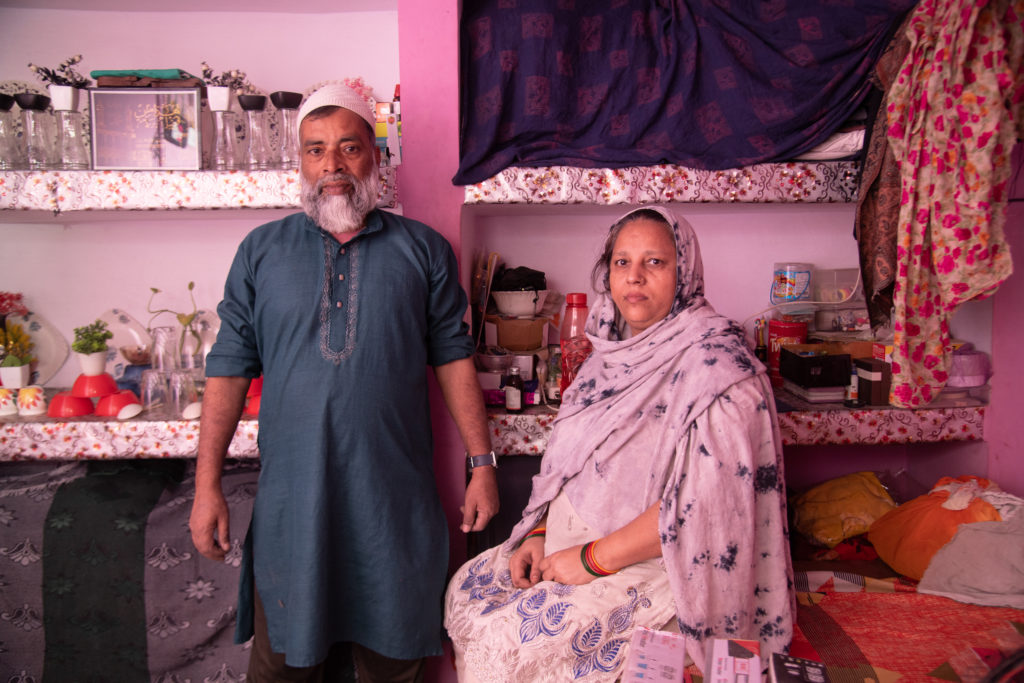
ICMC also maintains its direct operational activities in situations of complicated and long-term refugee emergencies by:
- providing life-saving humanitarian to people on the move in need of basic necessities of life, hygiene items, and access to mental health, psychosocial, medical assistance, education, and jobs skills training;
- facilitating resettlement applications for resettlement in host countries for refugees with significant vulnerabilities and who cannot return to their countries of origin or be integrated in the countries of first asylum;
- deploying legal and protection experts to UN and other organizations to assess needs and develop durable solutions in the event of large scale movements of migrants and refugees.
I will conclude with Pope Francis’ prayer on the World Day of Migrants and Refugees 2023:
God, Father Almighty,
grant us the grace to work tirelessly
for justice, solidarity and peace,
so that all your children may enjoy
the freedom to choose whether to migrate or to stay.
Grant us the courage to denounce
all the horrors of our world,
and to combat every injustice
that mars the beauty of your children
and the harmony of our common home.
Sustain us by the power of your Spirit,
so that we can reflect your tender love
to every migrant whom you place in our path,
and to spread in hearts and in every situation
the culture of encounter and of care. Amen.
P.S. I also encourage you to read and learn from the Report of a webinar organized by ICMC member Episcopal Conferences in Asia and other Catholic-inspired organizations, with a focus on the 109thWorld Day of Migrants and Refugees, containing an editorial by ICMC’s President, Ms. Christine Nathan, of India, and another contribution by Fr. Jaison Vadassery Joseph, Secretary of ICMC’s Governing structures.
